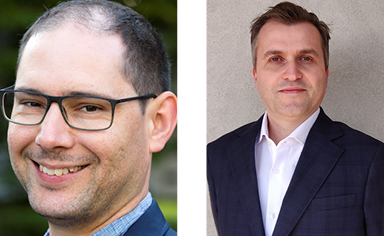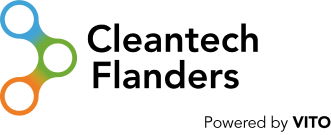With its strong collection and processing industry, Flanders is leading the world as regards ‘end-of-life batteries’. In order to consolidate and extend our region’s role in this, we need to look closely at the developments in both the supply of these batteries and their applications. Governments, research institutions and companies are joining forces for this.
Rechargeable batteries are an indispensable link in the transition towards a sustainable energy system. They enable the electrification of the mobility system and ensure that the demand for electricity can be aligned with the supply from intermittent sources like solar and wind. Indeed, the demand for lithium ion batteries (LIBs), which have always been the most popular type of rechargeable battery by some margin, has been rising enormously in recent years. It is anticipated that the demand for these in electric vehicles in Europe alone will increase by a factor of seven in the coming ten years. In Belgium, too, we are finding that, partly due to the policy of greening company cars, the electric car is on the rise. According to recent figures, almost one in five cars sold (full-electric as well as hybrids) contains an LIB.
Due to this growing demand, the need for critical raw materials, as they are known, such as lithium as well as nickel, cobalt and graphite, is of course rising too. As a region where raw materials are scarce, however, Flanders plays no meaningful role in the production value chain for LIBs, although with three major exceptions: the production of cobalt for battery applications, industrial know-how for production of cathode materials, and battery assembly in car factories in our region.
A geostrategic opportunity
But at the other end of the battery value chain, the picture looks completely different. Due to the anticipated growth of the electric car fleet in Flanders, the urban mine for raw materials for LIBs will also scale up significantly. This presents Flanders with an almost geostrategic opportunity that should not be underestimated: to become or remain a global player in the collection, dismantling, conversion and recycling of rechargeable batteries.
Flanders has seen a long and strong tradition in the industrial collection and processing of batteries that have reached the end of their life. As regards these ‘end-of-life batteries’, we are in a world-leading position. It is from this position of strength that we are presently working hard to convert LIBs from electric vehicles, which often still perform well, into e.g. home batteries for energy storage. This way, the conversion of LIBs creates local added value: the intrinsic value of the batteries and their materials largely remain in Flanders and the production of new LIBs for use in home batteries is avoided, thereby ensuring a low environmental impact worldwide.
In order to grasp this opportunity and realise the potential benefits of a Flemish conversion industry for LIBs, in both economic and environmental terms, there are still a number of major challenges that need to be tackled. In technical and economic terms, for example, the ability to dismantle and convert the wide variety of LIB types at an acceptable cost is a tricky task. For example, it is not easy to find out the ‘health’ of batteries today. The transport and dismantling of LIBs also comes at considerable expense. Various parties and consortia in our region are working on solutions to these kinds of problems.
Focus on sustainable battery production
With the Umicore plant in Hoboken, Flanders already has a recycling facility for end-of-life LIBs, albeit mainly for batteries originating from old electronics, such as smartphones and computers. Today, this Flemish LIB recycling capacity accounts for 21 percent of the total European capacity. This total capacity will need to rise substantially in the coming decades, however, especially because the European Union intends for a strong focus on sustainable battery production with a more local supply of raw and intermediate materials. The EU is doing so by encouraging battery recycling with recycling quotas that have a heavy focus on the recycling of critical raw materials, among other things.
We still face a great many technological challenges in the optimum processing of the large quantities and diversities of LIB waste into new resources, materials and/or batteries in the future. Battery packs for electric vehicles are in fact products that consist of a complex assembly of different components and materials. Efficient disassembly of such packs is needed to separate the cabling, electronics, cooling system, casing and battery modules and then to process or reuse these in the optimum way. Flemish research groups are currently studying how to fully or partly automate disassembly in order to limit safety risks and speed up the whole process.
Another challenge in the recycling process is the optimum separation of battery modules and cells in line with their material composition. After all, LIB cells often contain various types of electrolyte and anode and cathode materials. For optimum recycling, this composition must be known and it must be possible to sort the materials in question. The large diversity of battery shapes and compositions hinders efficient sorting here as well. But Flemish researchers and industry experts are working on solutions to this problem too. One way they are doing so is through the development of automatic battery sorting systems based on smart sensors, image recognition and artificial intelligence.
Innovative research
When recycling LIBs, especially during the pre-treatment, the cells need to be shredded and the material fractions need to be separated. New and improved methods are being developed for this too. The final step is then a metallurgical process, providing for optimum recovery of the valuable metals. The current processes are based on a highly efficient process that recovers valuable metals, such as cobalt, nickel and copper, but other materials, such as aluminium, lithium and graphite are lost. New processes should eliminate this shortcoming.
In addition, there is some innovative research into direct recycling routes. This is where functional materials, such as the electrolyte and the anode and cathode materials, are recovered from waste batteries, conditioned and immediately re-employed as materials for new batteries. Such processes, however, are technologically complex and come at a high cost, but they can recover the more valuable materials from waste batteries, thereby reducing the quantity of real waste. The Flemish metallurgical and recycling industry will play a major role in this with their expertise.
In order for circular industries for LIBs in Flanders to grow, it will be necessary to monitor developments in both the supply of end-of-life LIBs and the demand for applications very closely. This will enable Flemish industry and government actors to make informed decisions on investments and policy measures. In this context, we would like to mention the Re2Live project, which is being supported by VLAIO, through the cluster organisations VIL, Flux50, SIM and Agoria and by the VITO, SIRRIS and VUB research institutions. It is bringing together knowledge for mapping out the potential of LIBs from end-of-life vehicles for Flemish industry.
In addition, Flemish industry is given insight into Re2Live’s results and is being encouraged to provide feedback. There is great interest from companies and the project’s steering group already has more than twenty members, from car manufacturers through companies active in the recycling and reuse of batteries to the metallurgical industry, engineering firms and, of course, battery manufacturers.

Jeroen Gillabel, expert circular economy and Jeroen Spooren, expert recycling technologies, VITO



